Fight City Legends: The Ghetto Wizard
In the long history of boxing there have been many master trainers, gurus of the ring who made it their life’s work to mould young men into pugilists. Any list of great trainers and cornermen would have to include Ray Arcel (1899-1994), who started his career in the 1920s, when boxing ranked second only to baseball in popularity. Arguably no other trainer worked with as many all-time greats. A partial list would include Barney Ross, Henry Armstrong, Kid Gavilan, Freddie Steele, Tony Zale, John Henry Louis, Ezzard Charles and, perhaps most famously, Roberto Duran. And yet, when asked to name one boxer as the very best, Arcel showed little hesitation. “Benny Leonard,” he would say. “He was the best I ever trained.”
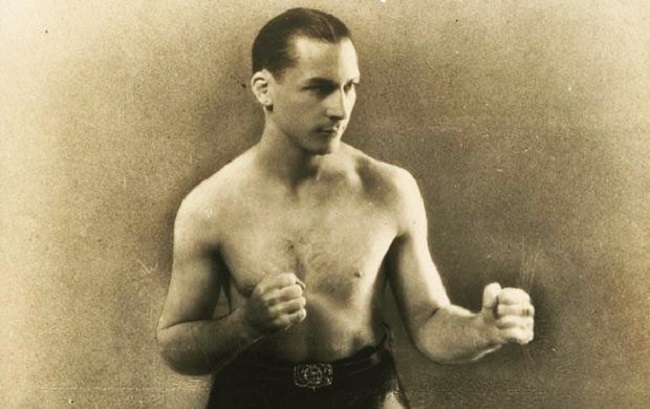
What set Benny Leonard apart? In Arcel’s view, sheer ring intelligence.
“Boxing is brains over brawn. I don’t care how much ability you got, if you can’t think you’re just another bum in the park. People ask me who’s the greatest boxer I ever saw pound-for-pound. I hesitate to say, either Benny Leonard or Ray Robinson. But Leonard’s mental energy surpassed anyone else’s.”
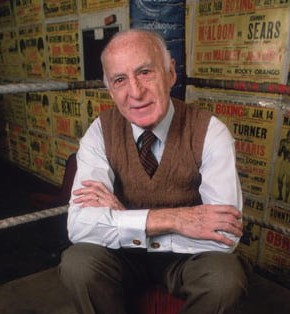
Benjamin Leiner, the son of Orthodox Jews, grew up in the Lower East Side of New York City, where Irish, Italian and Jewish ghettos seethed in close proximity. Street fights and brawls with rival gangs were simply part of growing up in that quarter. The young Benjamin received instruction in using his fists from his uncles, the logic being it was better to defend yourself with your bare hands as opposed to relying on bats or pipes. The tutelage must have been of rare quality; their nephew proved himself a street fighter to be feared, prompting the uncles to take him to the neighbourhood gym where he might learn the finer points of fisticuffs. At the time, Benny was eleven-years-old.
He turned pro only four years later, in 1911, but knowing his Orthodox parents disapproved of boxing, he changed his name from Leiner to Leonard. He actually lost his first pro contest by a third round stoppage, and would lose several more bouts before he found his form and began climbing up the lightweight ranks. But soon enough boxers felt lucky if they managed to win a single round or last the distance against the ring genius who came to be called “The Ghetto Wizard.”
Before reaching such lofty heights though, he had his parents to deal with. As Leonard himself told the apocryphal tale: ”One night I came home after a fight and my mother was crying. She had found out. My father came in and started yelling at me. ‘Fighting, fighting, fighting for what?’ I took out the five bucks I’d earned and handed it to him. He looked at it, smiled and put his arms around me. ‘That’s all right, Benny,’ he said. “So when are you going to fight again?'”
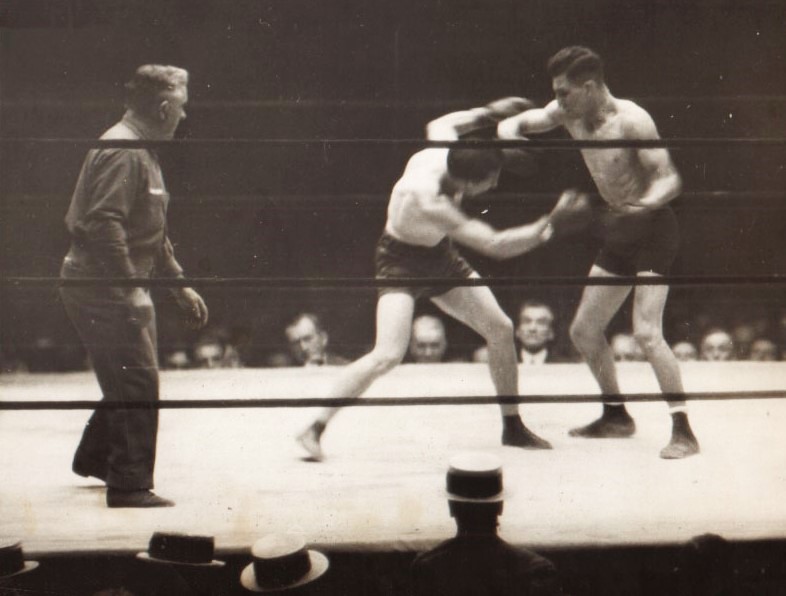
As a ring tactician, Leonard was nothing less than brilliant. He studied boxing like an earnest grad student, spending hours in the gym not necessarily training, but watching other boxers, observing their moves, footwork, feints and timing. Approaching the sport from an analytical point of view, he found openings and weaknesses where others could not. Quick of both hand and foot, with an excellent jab and a devastating right hand, he was slippery and hard to hit. He countered with precision, making his opponents pay for the slightest mistake. Competing in a lightweight division stacked with top talents, Leonard proved himself the best of the best, wresting the world championship from fellow all-time great Freddie Welsh in 1917 and holding it for nearly seven years. He turned back the challenges of such excellent boxers as Johnny Dundee, Richie Mitchell, Charley White, Rocky Kansas, Johnny Kilbane and Lew Tendler.
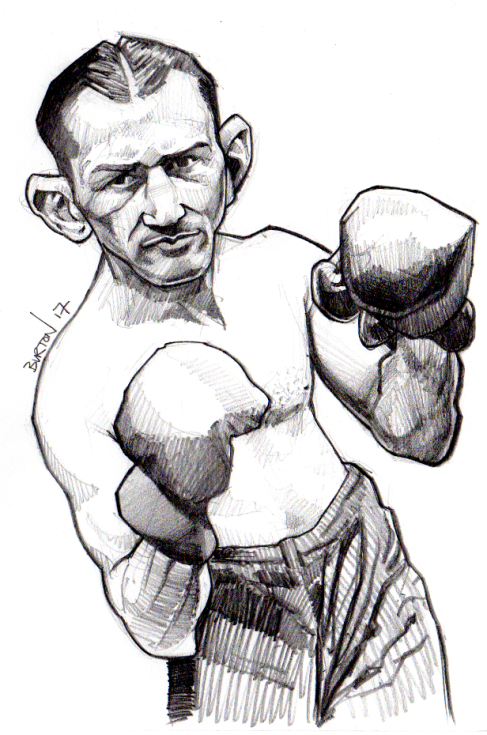
Handsome and a natural-born showman and charmer, Leonard was revered by the public, becoming a true celebrity and a massive draw in New York. His legendary battles with Mitchell and Tendler proved major events, attracting crowds of fifty thousand or more. Part of Leonard’s appeal was his clever boxing style, sophisticated and artful, balletic in its constant maneuvering as he danced and darted, Benny the supreme matador, always one step ahead of the bull. As he liked to often boast (while at the same time reassuring his constantly worrying mother), his peerless defensive skills allowed him to win fights without even getting his hair “mussed.” Benny’s fans cheered with glee when, just before exiting the ring after another victory, Leonard cocked his head and proudly smoothed a hand over his coiffure.
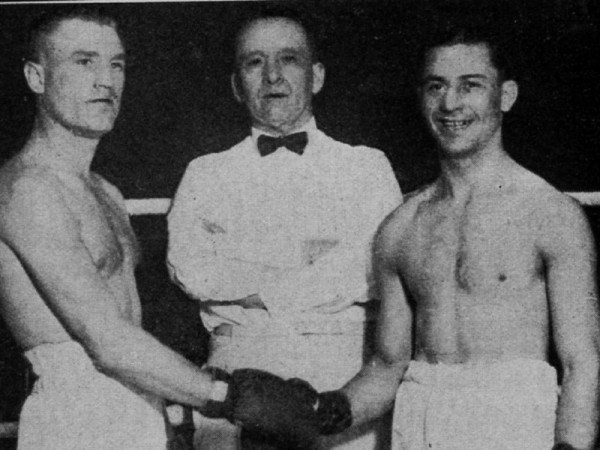
Leonard was still at the top of his game and undefeated as champion when he announced his retirement in January of 1925. He had become sympathetic to the pleas of his aging mother who could never bring herself to watch any of his fights. (As he didn’t mind admitting, Benny was a certified “mama’s boy.”) Besides, he had millions of dollars in the bank and nothing left to prove. But the stock market crash of 1929 obliterated Leonard’s savings and compelled him to return to the ring. The ill-fated comeback ended in 1932 with a six round loss to future welterweight champion Jimmy McLarnin. Leonard never fought again but boxing was in his blood and he didn’t stray far from the gyms and fight clubs. He became a referee and in 1941 suffered a heart attack while officiating a bout in New York City and, perhaps fittingly, died in the ring.
Benny Leonard is regarded by many, if not most, as the best lightweight of all time, and no credible list of the greatest boxers of all-time, pound-for-pound, can omit his name. As scribe Jersey Jones put it, “Leonard was one of the all time greats … A magnificent boxer, a deadly puncher, a brilliant ring strategist, and an extraordinary showman, [ruling] over the most formidable array of challengers in the annals of the lightweight division.” — Michael Carbert

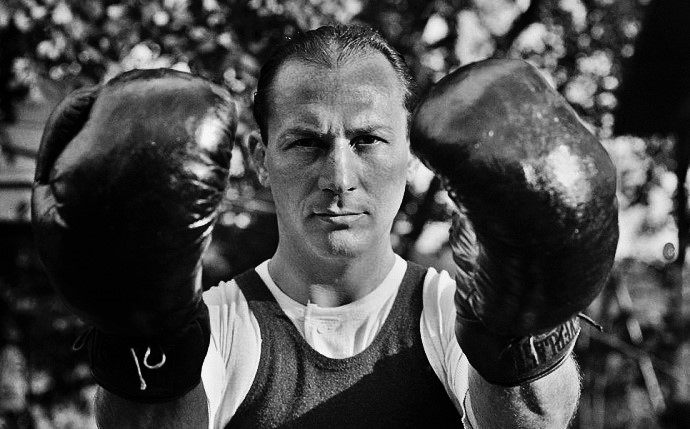

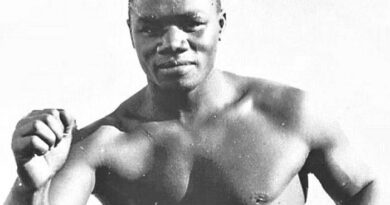
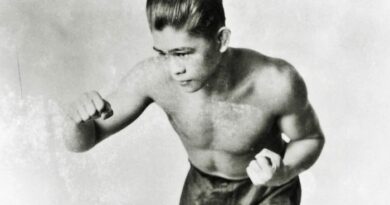
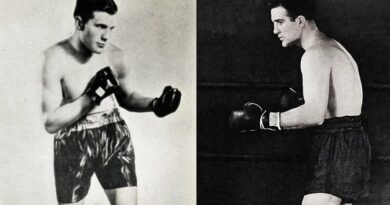
I own Benny Leonard’s Gold Medal. Get back to me.